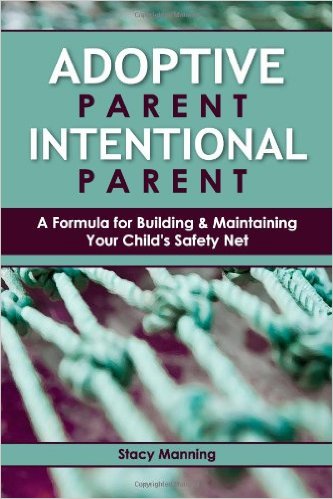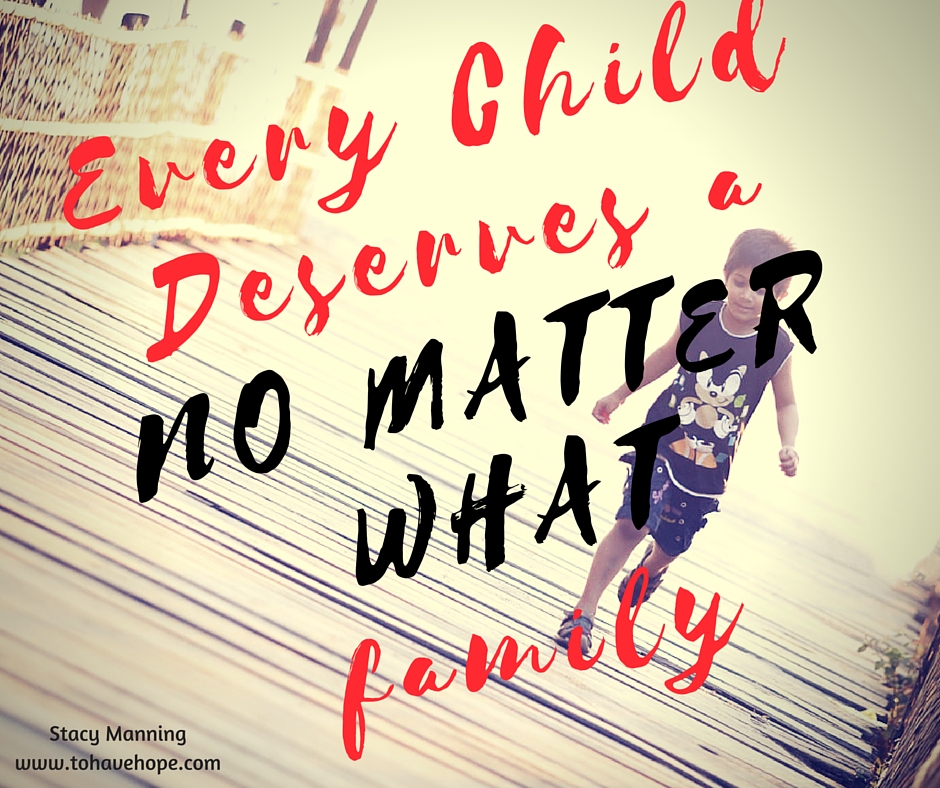|
I Was Thinking...
Intentional Parent: Zeroing in On Emotional Age In an effort to help our children heal, it is important that we become Intentional Parents. Our children suffer from a breach in attachment, grief and the impacts of trauma leaving them with deficits that sabotage relationships, learning and the acquisition of self-worth among other things. As adoptive parents, it is key that we always strive to parent our children based in the knowledge and understanding of these deficits. Many of these deficits are invisible, which creates a challenge for many parents. One of the key issues for us to understand is that our children missed crucial developmental stages from infancy and on up. It is easy to miss these interruptions in development because our children are survivors, they have adapted language and behaviors that help them get by. Most of the time that is exactly what they do…just get by! Early developmental stages are the foundation of social and emotional learning and they contribute to our children’s ability to self- regulate and learn. Later development is directly affected by early developmental experiences. Typical development takes place over time and is affected by social and relational experiences. It naturally has a back and forth motion and becomes more complex. We see our adopted kids often have a lack of self-regulation and many times we get upset about the “two steps forward one step back” movement, often labeling it defiance or not trying. It is not defiance; it is deficit! Typically, their emotional development does not match their chronological age and if they can catch up, it takes a long time and it will be affected by many variables such as anxiety, consistency, the natural ebb and flow of development, and a hyper alert limbic system, etc.. A great tool to use to help your child move through some of those developmental stages is to use their emotional age as your parenting guide. As Intentional Parents, we must strive to meet our children where they are in all aspects of life. Often times this is at a different level and for a longer period of time than their biological counter parts. It is often counter intuitive and different than societies standards to parent your child by their emotional age however when we do, our children are much more successful. What is Emotional Age? The age at which our children are emotionally able to function in the world, in relationships and in daily stressors. It is usually a range more than a single digit. (i.e. 2-3years old) Age range is usually lower at home than in public Typically related to when your child’s trauma or abandonment occurred Marked by missed developmental milestones Where we need to parent our child It would not be uncommon to see an eight year old child who was adopted six years ago have an emotional age range of two to four years of age or a twelve year old child adopted at age eighteen months have an emotional age range of six to eight years old. Remember, living in trauma (experiencing or observing actual or threatened death, physical injury or threat to physical integrity that results in feelings of terror, horror or hopelessness along with traumatic experiences that occur within the care-giving system which include prenatal exposure to alcohol and drugs, neglect, institutionalization, breach in attachment, abuse, abandonment, multiple moves, pain illness and hospitalization) creates unsafe unpredictable environments which are not conducive to the acquirement of normal developmental milestones. Once you feel you have decided upon your child’s emotional age, use it as a marker to make parenting choices that will help to create a healing environment so that your child the can feel safe so his limbic system can learn to calm, he can get his needs met appropriately, successfully manage relationships and expectations, learn tools to work around his deficits, give him time to catch up on learning and really internalize that he is valued for who he is and what he can do right now. So, meet your child at his emotional age. Let him grow up as your child from zero. Let him be your baby (emotionally) if that is what he needs! As you make decisions about how to care for your child and what he needs, use that emotional age. For example, if you are debating whether your child should go outside to play by himself…ask yourself would you let a child their emotional age do that. If your answer is no. then don’t set your child up to fail by putting him in that situation. When put in a situation he is too young for, he will probably do something that will cause upset in your relationship and what he needs more than anything is to have a consistently calm relationship with you, one in which he ultimately feels safer than he ever has before. Healing comes from that kind of safety! Be an Intentional Parent!
0 Comments
Leave a Reply. |
Categories
All
Archives
February 2020
|




 RSS Feed
RSS Feed